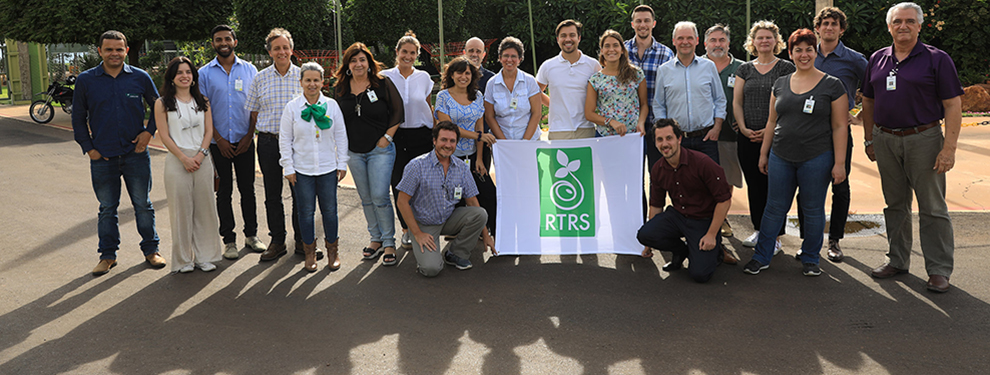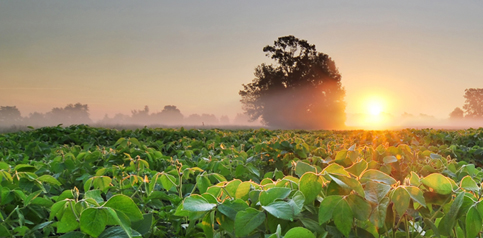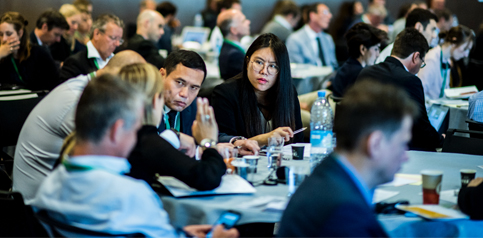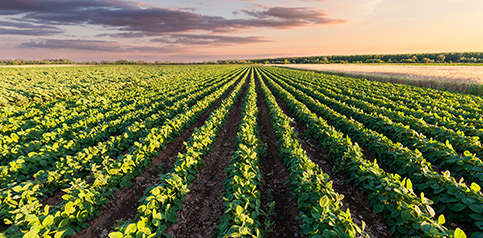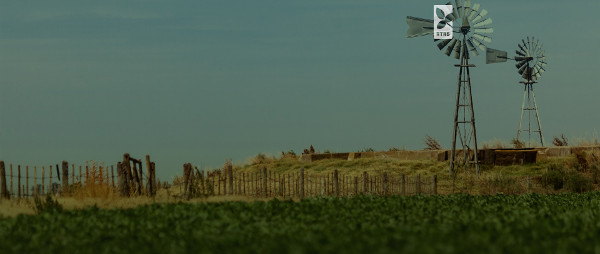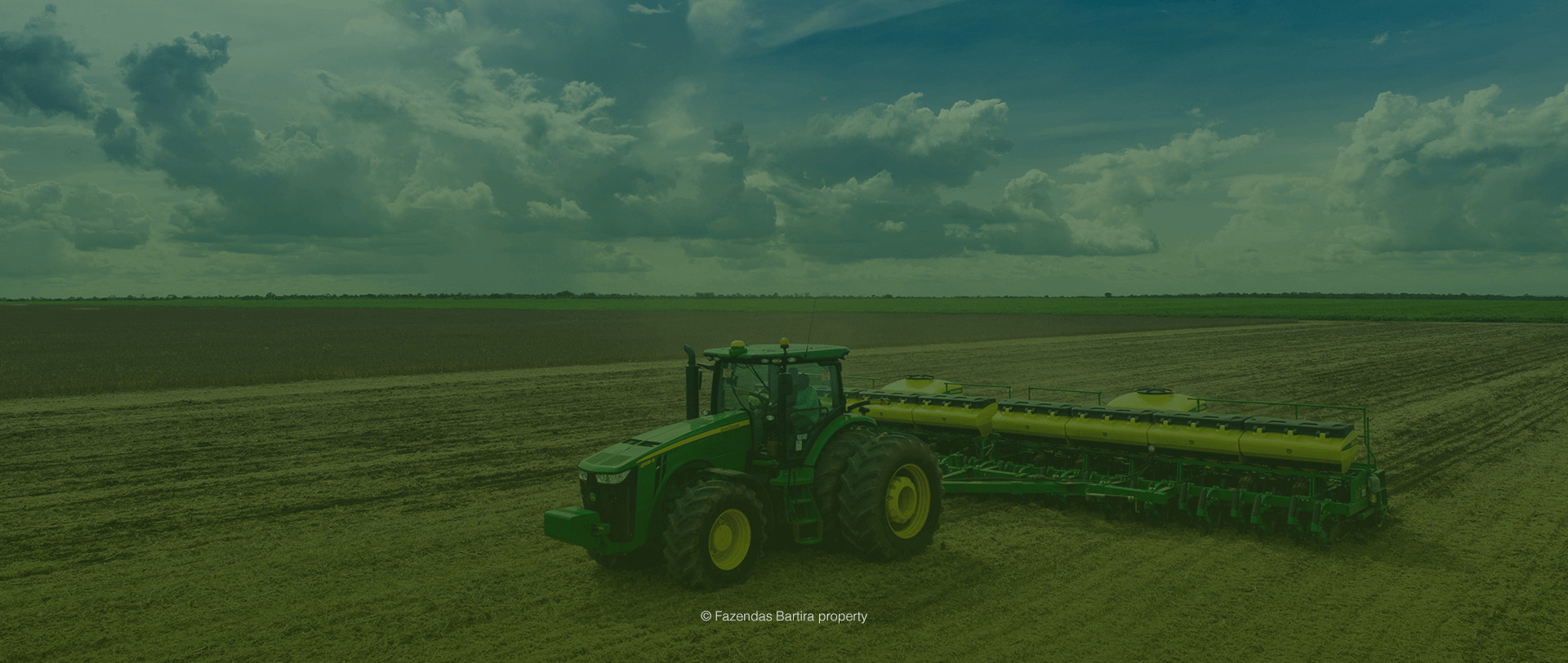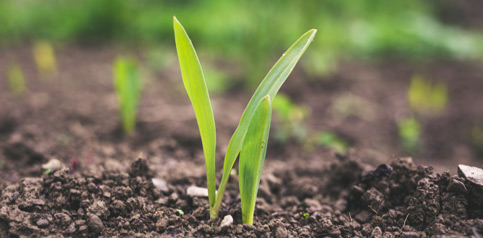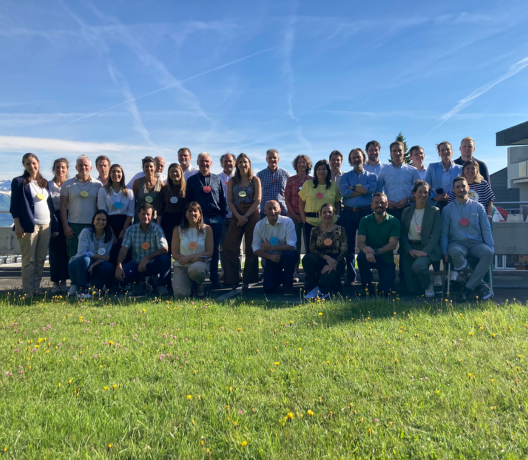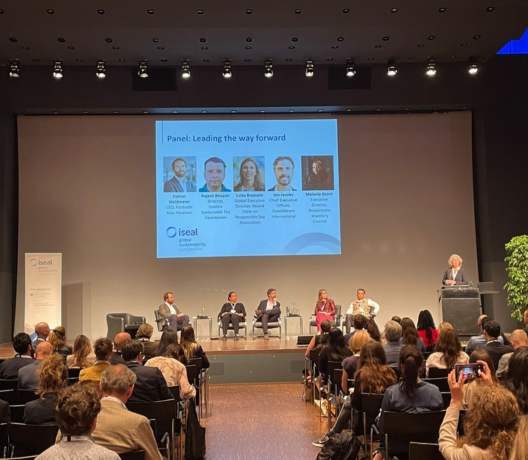In February, Fazenda Progresso – located in the city of Sebastião Leal (in the state of Piauí), Brazil, about 400 km from the capital Teresina (Piauí) – welcomed the Board of the Round Table on Responsible Soy Association (RTRS) to hold the first gathering of 2019, spanning two days of meetings and one day of visits to certified and uncertified farms, family farming cases and social projects in place under RTRS certification.
At the occasion, the group took part in a technical visit to the farm, which focuses on investments in innovation and technology in soy production, which has leveraged agricultural production in the region and brought benefits to the communities 7T8A1489-okaround the property. For RTRS, having the Board visit properties like this one gives rise to different perspectives and enriches discussions.
“This is the first time we meet in the Northeast; we have held two days of meetings to discuss our strategic plans and set guidelines for upcoming projects and partnerships. An important topic in the discussion was what must be done for RTRS to become an official and recognized member of the ISEAL Alliance,” states RTRS President Marina Born.
ISEAL is a global association that brings together reliable sustainability standards that comply with the Good Practices Codes to promote measurable changes via open, rigorous and accessible certification schemes. They are supported by international accreditation bodies in compliance with accepted international best practices. RTRS will be the first standard exclusively focused on soy production in ISEAL.
“It was also an opportunity to plan for our future and long-term goals. Companies, NGOs and Governments have sustainability and social responsibility goals to meet by 2020 and we are working to see them through. We also worked on structuring the areas the association will focus on until 2025″, says Born.
The group’s agenda also included meetings in the city of Sebastião Leal (Piauí), with visits to social projects, communities, small producers and schools supported by Fazenda Progresso.
According to Gisela Introvini – RTRS Board member and Superintendent at FAPCEN, a Foundation that represents producers in the Brazilian states of Maranhão, Tocantins and Piauí – soy production has helped cities develop in all three states. “Twenty years ago, Piauí was considered poor and unproductive, but now its productivity ceiling is similar to that of any other Brazilian state. Soy is also a source of employment and income. Soy-producing cities in the Northeast boast higher per capita incomes and human development indices than other cities. Certification is embedded in these processes and makes them sustainable,” she says.
“Brazil is a large country, with diverse soy-producing regions. Certain peculiarities in the state of Piauí, for example, cannot be found in the South or Midwest regions of the country. Our Board is composed of individuals from different parts of Brazil and the world; for many, it was their first glimpse of this reality. RTRS enables relationships to flourish and knowledge to be shared, as we are a dialogue-based round table that brings together different soy initiatives at a global level, which is very enriching. As such, much of the Board’s time on those days was spent thinking about ways to make the round table even bigger and more representative”, says Marina Born.
About Grupo Progresso
The Sanders Family – owners of Grupo Progresso along with four other farms in the state of Piauí and one in Minas Gerais – decided to invest in certifying their soy production at Fazenda Progresso in accordance with RTRS principles and criteria. It was a landmark for Northeast Brazil, as this was one of the first properties in the region to be granted certification.
The premises at Fazenda Progresso are quite impressive and denote the importance of investing in innovation and technology; their agricultural operation itself is just as impressive. In total, Fazenda Progresso has 26 thousand hectares of soy and 4,100 hectares of cotton. Both crops are certified; soy is certified by the Round Table on Responsible Soy Association (RTRS) and cotton is ABR-certified and CBI-licensed.
